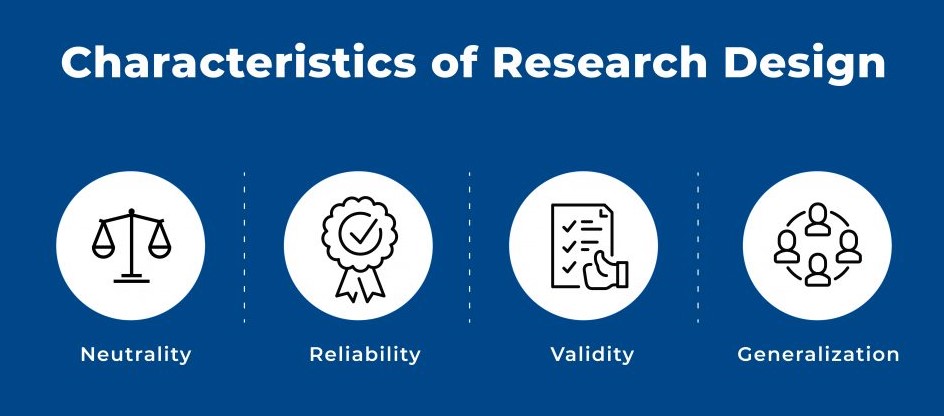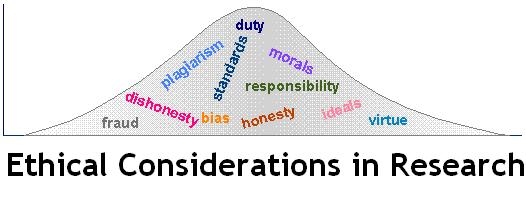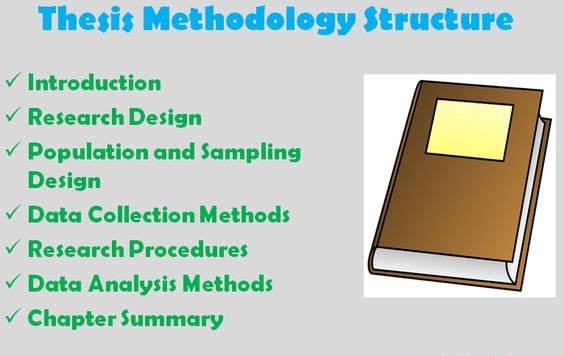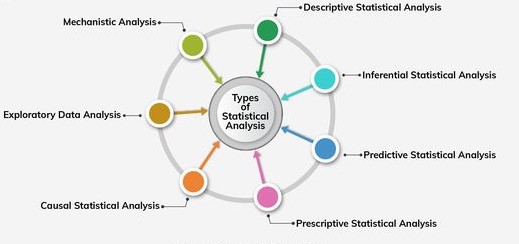
Table of Contents
The nursing thesis methodology is the heart and soul of your research journey. It’s the roadmap that guides you through the complex process of collecting, analyzing, and interpreting data to answer your research question. A well-crafted nursing thesis methodology ensures your study is sound, credible, and ultimately, impactful.
This article delves into the key components of a stellar nursing thesis methodology, offering practical tips and insights to help you navigate this crucial step in your academic journey.
The Essence of a Nursing Thesis Methodology
The essence of a nursing thesis methodology lies in clearly and convincingly outlining how you will answer your research question. It’s about providing a roadmap for your study, demonstrating that your chosen approach will generate valid and reliable data. Here’s a breakdown of the key elements of a robust nursing thesis methodology:
Justifying Your Choices:
- Why this method? Explain why your chosen methodology is the most appropriate to address your research question and objectives.
- Why this design? Clearly articulate the specific research design (e.g., qualitative, quantitative, mixed methods) and how it aligns with your research goals.
- Why these participants? Explain your sampling strategy and how it ensures a representative and relevant group for your study.
Transparency and Reproducibility:
- Step-by-step process: Provide a detailed and logical sequence of steps you’ll take in collecting and analyzing your data.
- Data collection methods: Describe your chosen methods (e.g., surveys, interviews, observations) and explain how they will gather the necessary information.
- Data analysis techniques: Specify the methods you will use to analyze the collected data (e.g., statistical analysis, thematic analysis) and justify their suitability.
In essence, a strong nursing thesis methodology demonstrates that your research is sound, reliable, and ethical, giving readers confidence in the validity of your findings.
Defining the Research Question: The Foundation of Your Thesis Methodology
Before diving into the specifics of your nursing thesis methodology, it’s essential to have a clear, focused research question. This question acts as your compass, guiding your research design, data collection methods, and analysis techniques. A well-defined research question ensures your nursing thesis methodology is relevant, feasible, and contributes meaningfully to the existing body of knowledge.
Step-by-Step Guide to Writing a Nursing Thesis Methodology
1. Selecting the Right Research Design: A Tailored Approach to the Methodology Section
Choosing the appropriate research design for your nursing thesis methodology is paramount. It sets the foundation for your study’s structure, ensuring the data collected is relevant and interpretable in relation to your research question. There are several common research designs used in nursing research, each with its strengths and limitations:
- Quantitative: Uses numerical data to test hypotheses and quantify relationships. Common methods include surveys, experiments, and statistical analysis.
- Qualitative: Explores the nuances of experiences, beliefs, and perspectives through in-depth interviews, focus groups, or observations.
- Mixed Methods: Combines both quantitative and qualitative approaches to gain a comprehensive understanding of the research problem.

Your choice of research design should be guided by your research question, the type of data needed, and the level of control you require. For example, if you’re studying the effectiveness of a new pain management intervention, a quantitative design might be appropriate to measure outcomes numerically. However, if you want to understand patients’ experiences with the intervention, a qualitative design might be more suitable.
2. Data Collection: The Foundation of Your Methodology
Data collection forms the cornerstone of your nursing thesis methodology. The methods you employ should align with your chosen research design and provide the necessary information to answer your research question. Here are some commonly used data collection methods in nursing research:
- Surveys: Widely used to gather structured data from large samples on attitudes, beliefs, or behaviors.
- Interviews: Allow for in-depth exploration of individual experiences, perspectives, and opinions.
- Focus Groups: Provide a platform for group discussions and collective insights on a specific topic.
- Observations: Used to gather data on behaviors, interactions, and contextual factors in a natural setting.
- Physiological Measurements: Involve using specialized equipment to collect data on physiological parameters like heart rate, blood pressure, or oxygen saturation.
- Medical Records: Provide valuable information on patient demographics, diagnoses, treatments, and outcomes.
3. Ethical Considerations for a Thesis Methodology
Ethical considerations are crucial in any nursing research, especially within your nursing thesis methodology. You must ensure that all research participants are treated with respect, dignity, and confidentiality. Key ethical principles to consider include:
- Informed Consent: Participants must be fully informed about the study’s purpose, risks, and benefits before providing consent to participate.
- Confidentiality: Participant data should be kept confidential and protected from unauthorized access.
- Anonymity: Where possible, participants should be anonymized to protect their identity.
- Beneficence: Research should aim to maximize benefits and minimize risks to participants.
- Justice: The benefits and risks of the study should be distributed fairly among participants.

4. Data Analysis: Making Sense of Your Nursing Thesis Methodology
After collecting your data, you must analyze it to extract meaningful insights and answer your research question. The choice of data analysis methods depends on your chosen research design and the type of data collected.
- Quantitative Data Analysis: Uses statistical methods like descriptive statistics, inferential statistics, and regression analysis to analyze numerical data.
- Qualitative Data Analysis: Employs thematic analysis, content analysis, or narrative analysis to identify patterns, themes, and insights within textual data.
- Mixed Methods Data Analysis: Combines both quantitative and qualitative data analysis techniques to integrate findings and gain a comprehensive understanding.
5. Validity and Reliability: The Pillars of a Strong Thesis Methodology
Validity and reliability are crucial concepts that determine the rigor and trustworthiness of your nursing thesis methodology.
- Validity: Ensures your research instrument measures what it intends to measure. Different types of validity include:
- Content Validity: Ensures the instrument adequately covers the relevant content domain.
- Construct Validity: Demonstrates the instrument measures the theoretical construct it aims to assess.
- Criterion Validity: Indicates the instrument’s correlation with an external criterion.
- Reliability: Indicates the consistency and stability of your research instrument. Types of reliability include:
- Test-Retest Reliability: Assesses consistency over time.
- Internal Consistency Reliability: Examines consistency within a single measurement instrument.
- Inter-Rater Reliability: Evaluates consistency between different raters.
6. Pilot Testing Your Thesis Methodology: Refining Your Approach
Before embarking on your full-scale study, it’s highly recommended to conduct a pilot test. This involves a small-scale trial of your nursing thesis methodology to identify any potential flaws, refine data collection instruments, and ensure feasibility. Pilot testing helps ensure your methodology is efficient, effective, and produces valuable data.
7. Writing the Nursing Thesis Methodology
When writing your nursing thesis methodology, clarity and transparency are essential. Your readers should clearly understand the rationale behind your chosen methods, how they relate to your research question, and the steps involved in collecting and analyzing data.

Here are some key points to include:
- Research Design: Clearly articulate the chosen research design and its rationale.
- Data Collection: Describe the specific methods used to collect data, including the instruments, procedures, and any ethical considerations.
- Data Analysis: Explain the data analysis methods used, including statistical tests or qualitative analysis techniques.
- Validity and Reliability: Discuss the validity and reliability of your instruments and how these measures were assessed.
- Limitations: Acknowledge any potential limitations of your nursing thesis methodology, which could impact the generalizability of your findings.
8. Sample Size: Determining the Right Number of Participants in Your Nursing Thesis Methodology
Sample size is an important factor in your nursing thesis methodology, particularly for quantitative studies. Choosing the right sample size ensures you have sufficient data to answer your research question and achieve statistically significant results. Factors to consider when determining sample size include:
- The complexity of the research question: More complex questions may require larger sample sizes.
- The desired level of statistical power: A higher power level requires a larger sample size to detect a statistically significant difference.
- The variability of the population: More variability requires a larger sample size.
- The availability of participants: Practical limitations may influence the feasible sample size.
9. Time Management: The Importance of Scheduling in Your Nursing Thesis Methodology
Time management is crucial when conducting research, particularly for your nursing thesis methodology. Establish a realistic timeline for each stage of your research, from data collection to analysis and writing. A well-structured timeline helps keep you on track, ensures timely completion of your study, and avoids delays.
10. The Power of Collaboration: Seeking Guidance for Your Nursing Thesis Methodology

Don’t underestimate the power of collaboration in your nursing thesis methodology. Seek guidance from your research advisor, fellow researchers, or experienced faculty members. Their expertise can help you refine your methodology, address potential challenges, and ensure your study meets the highest standards.
11. Reflecting on Your Nursing Thesis Methodology: A Continuous Process
Your nursing thesis methodology is not a static entity. As you progress through your research, be prepared to adapt and refine your approach based on emerging insights, unexpected findings, or unforeseen challenges. Continuous reflection and evaluation ensure your methodology remains relevant, sound, and contributes meaningfully to your research goals.
12. Disseminating Your Findings: Sharing Your Nursing Thesis Methodology with the World
Once you’ve completed your research, disseminating your findings is crucial. Sharing your nursing thesis methodology through publications, presentations, or conferences allows you to contribute to the broader body of nursing knowledge and potentially impact practice.
Common Pitfalls in Writing a Thesis Methodology
1. Lack of Clarity and Focus:
- Vague or ambiguous research questions: A clear and focused research question is the foundation of a strong methodology. If your question is poorly defined, your methodology will be equally unclear.
- Unclear research design: What type of study are you conducting? (e.g., quantitative, qualitative, mixed methods) Your methodology should explicitly state your design and how it aligns with your research question.
- Unjustified choices: Explain why you’ve chosen specific research methods, data collection techniques, and analysis approaches. Don’t simply list them; provide rationale and justification for their relevance to your study.
2. Inadequate Description of Procedures:
- Insufficient detail: Provide enough information for someone else to replicate your study. Be specific about data sources, sampling methods, data collection tools, and data analysis procedures.
- Missing ethical considerations: Address ethical implications related to data collection, participant privacy, informed consent, and data security.
- Oversimplification of data analysis: Don’t just state you’ll use SPSS or R. Describe the specific statistical tests or analytical techniques you plan to employ and why they are appropriate.

3. Weak Justification and Logic:
- Lack of theoretical framework: Connect your methodology to relevant theoretical frameworks. Explain how your chosen methods support your theoretical assumptions and contribute to the existing body of knowledge.
- Ignoring limitations: Acknowledge potential limitations of your study and how they might affect the validity and generalizability of your findings.
- Unrealistic expectations: Avoid overstating the potential impact or generalizability of your findings. Be realistic about what your study can achieve within the chosen methodology.
4. Poor Presentation and Organization:
- Confusing language and jargon: Use clear and concise language. Avoid unnecessary technical jargon unless it’s essential for the reader to understand your methods.
- Disorganized structure: Ensure your methodology section is logically structured and easy to follow. Consider using headings, subheadings, and visual aids to improve clarity.
- Insufficient referencing: Cite relevant sources to support your methodological choices and ensure credibility.
5. Missing or Inadequate Pilot Testing:
- No pilot testing: Conducting a pilot study can help you refine your methods, identify potential problems, and improve the quality of your research.
- Ignoring feedback: Use feedback from your pilot study to adjust your methodology before embarking on the full research project.
Remember, a strong methodology is crucial for the credibility and validity of your thesis. By avoiding these common pitfalls, you can create a clear, well-structured, and convincing methodology section that strengthens your overall research.
Elevating Your Nursing Thesis Methodology

Crafting a stellar nursing thesis methodology is a journey that requires careful planning, meticulous execution, and continuous reflection. By following these guidelines, you can ensure your research is rigorous, ethical, and ultimately, contributes meaningfully to the advancement of nursing knowledge. Remember, your nursing thesis methodology is not just a technical process; it’s an opportunity to explore, discover, and make a lasting impact on the field.
Get the Best Nursing Thesis Methodology Writing Help
Writing the methodology section of a nursing thesis is an elaborate task that can be overwhelming. However, you can easily avoid the stress with professional nursing thesis methodology writing help from PhD Nurse Writer. We offer customized nursing thesis writing help for undergraduate, Degree, Master’s and Doctoral courses. Our writers can also assist you with writing original nursing research papers, essays, case studies and dissertations.





